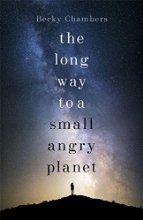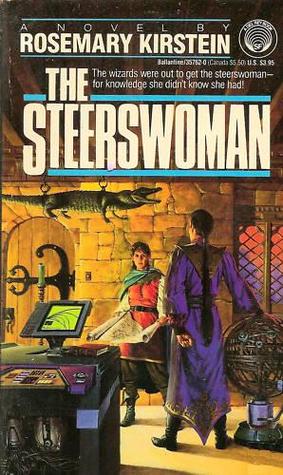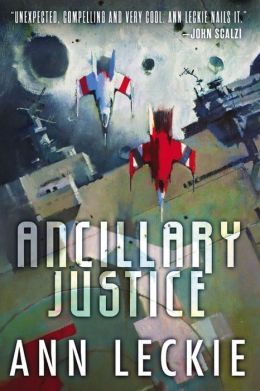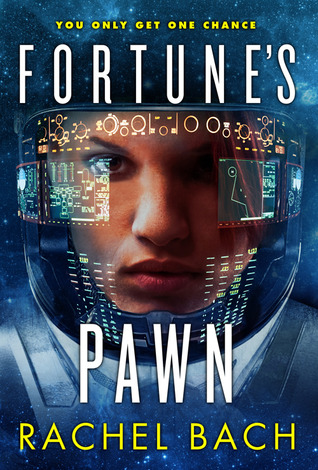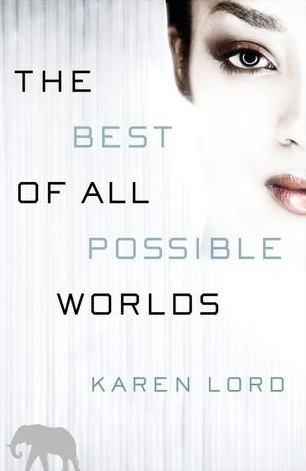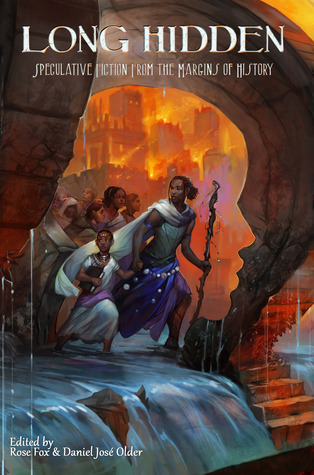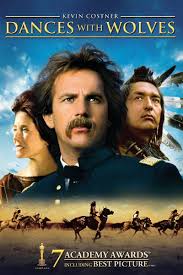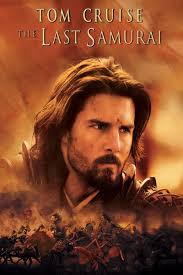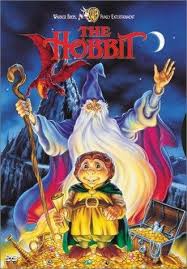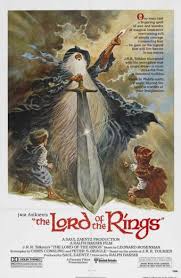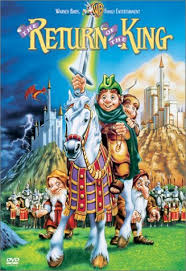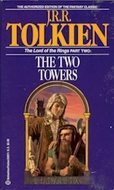33 - Representation with Justina Ireland (2)
This episode is part 2 of my interview with Justina Ireland about race, representation, and reviews in Science Fiction & Fantasy. In addition, I'll be reviewing the Clarke Award 2016 shortlist with Maureen K Speller and Megan of From Couch to Moon, and I opened by talking a bit about what I think of when I think "Science Fiction"
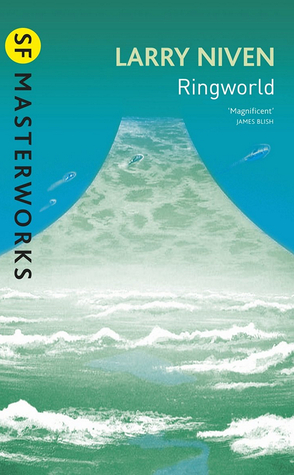
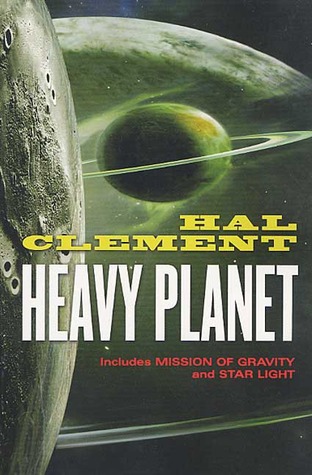
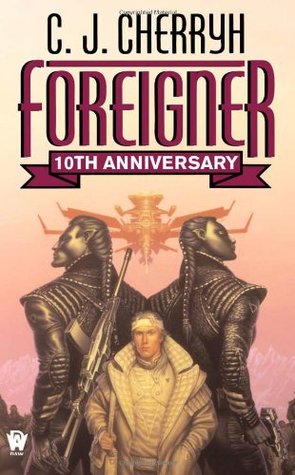
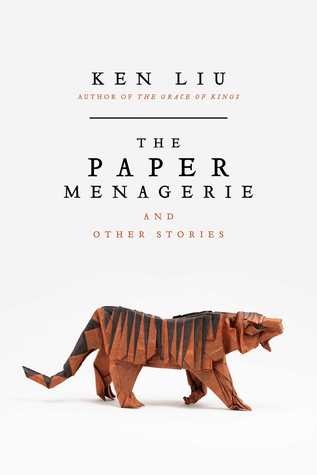
The Atlantic: Reading a Novel Changes Your Brain (yes, I did just grumble about giving these sorts of articles much credence. I am not particularly consistent)
Transcript of Interview
JSM - I feel like I've heard two different positive statements about diversity & inclusion. One that there are familiar (I dunno that tropes is quite the right word), but familiar roles and stories that have been told where there's still a lot of value to retelling those stories with historically marginalized identities at the center of those stories - giving the black woman the chance to be the romantic lead, and probably, and I don't know a whole lot about disability and neurodiversity but I'm sure that being able to retell stories with more diverse or disabled leads, that there are a plethora of stories out there that would give a whole lot of people a chance to see themselves in a role they've never seen themselves in. I remember that being one of the big things about MAd Max.
JI - Yes
JSM - And I feel like there's also - being able to to experiment and explore and get rid of some of the assumptions that we've always made opens up lots of new possibilities. Where just there's all sorts of stuff out there that because we've been writing the same sorts of books and if we can get more creators in there & people willing to take more risks and explore the boundaries of their imagination even more, there's a whole host of stories well outside of things that may not put focus on identities that haven't been on the page very much, but will give all of us a chance to see commonalities & see differences in ways that we haven't before. Which is I think kind of a thing people say about having aliens in SF. And that that's also a very untapped field and area.
JI - So I think classic stories, I think familiar stories are a good entry point for people who wouldn't necessarily pick up a book with a marginalized main character. I think there are people who are resistant to picking up a book with a neurodiverse lead, or resistant to pick up a book with a disabled lead, because they're like "oh, it's a hassle book, it's a deep book, it's going to be deep, I just want a light hearted fun read" that's what you hear a lot of times when people are kind of pushing back against diversity, I just want something light & fun I don't want all that seriousness stuff.
And I think when you take something like Snow White or Cinderalla or any kind of classical story, Romeo & Juliet, these stories that we know, I always call it the medicine in the hot dog. I have a dog, so whenever I have to give him medicine, I shove the medicine in the hot dog and when I do that he wolfs it down and he doesn't even notice the medicine until afterwards. And I think that when you take a familiar story & you racebend it or you y'know genderbend it or you do something that kind of shifts that narrative enough people seem familiar with the medicine they need, and the medicine they need is the diversity. You need to see people outside yourselves in stories, just as people need to see themselves in stories, it behooves you as a human being to see people beside yourself so that you can be a better human being and build some of that empathy. And there's actually a study that was done where if you read books and are situations
JSM - it increases empathy?
JI - Yeah, it increases your cognitive ability to deal with situations & you're more willing to embrace differences in real life & stuff like that. So I think that's really important, but I also think there are only so many stories that are going to be told. Ancillary Justice if you look at the story, it is nothing really new. There are a million swashbuckling revenge space stories out there. What made it different was the way that Leckie used gender,
Rachel Bach who just wrote the Fortune's Pawn books, it's just basically a mercenary in space, but because the main character happens to be a female mercenary all of sudden it's something new & fantastic & fresh. It's actually an awesome trilogy I loved it.
I think it's really important to think there really are no new plots. Everyone's had that English Teacher who's like
JSM - Right
JI - all the stories were all told by Shakespeare
JSM - Yep
JI - And that's true to a degree but the difference is the character, y'know. I will go to hell and back with an interesting character & a shitty plot. But I'm not going to step 2 with a plot that's formulaic & bland characters. I don't care how complex your plot is, if your main characters, if your characters are flat, no one's going anywhere with you. And I think ... just writing different character, giving people something they haven't seen before & a familiar plot, it's really great, it's like training wheels for diversity, it's like people were going to read it just because they know the story, people LOVE the kidnapped Princess, or Mistaken Identity stories, there's million stories of Mistaken Identity in Fantasy, but if you y'know put in two princesses who fall in love instead of a princess and a boy, or if you put in a disabled princess or a neurodiverse princess, all of a sudden the story is different & the obstacles are different
*Interstitial Music*
JSM - Of course, even when authors do choose to write stories with characters from marginalized backgrounds who speak and act and live in their own communities and not the federation starships or pseudo-medieval Europe that so many stories are set in, their books are reviewed and discussed by a community that may or may not be familiar with those backgrounds. I’m going to link to an annual survey by the genre magazine Strange Horizons which looks at the gender and racial backgrounds of reviewers at many genre outlets as well as the books they review. Certainly there are authors and editors out there taking risks and telling stories from their own perspectives. More than once on this podcast I’ve mentioned the anthology Long Hidden: Speculative Fiction from the Margins of History.
*Interstitial Music*
JI - My biggest pet peeve when people do make those daring choices, when they do try something different is the reviews you read & the pushback you see in these reviewers - we saw it with the Long Hidden anthology where someone was like "it was all good except for this one story written in Vernacular AAVE"
JSM - "The Literrary Trick" I believe was the phrase
JI - Yes it was, and I'm like that's not a literary trick, just because you've never been somewhere where people speak that way, doesn't mean it's like a literary trick
Or, when Karen Lord's the Best of All Possible Worlds came out, there was I think a Strange Horizons review that was talking about like "I liked it but it wasn't very feminist because the Main Character falls in love with one of the other characters", and they were like it wasn't feminist because she fell in love, but the idea of a woman of color being able to be in love to be a love interest & to be cherished by somebody, that is pretty feminist for a woman of color, right?
Y'know WOC have been property for most of american history, they've been just something for people to use, so the idea that a WOC can be cherished and loved and be a love interest, that's revolutionary, to think that you're deserving of that same kind of tenderness that white women would take for granted, y'know when was the last time you saw a romantic comedy with a WOC as the lead, that wasn't a quote-unquote Black Movie (that Tyler Perry wasn't involved), so that's the point - just because it's not revolutionary for you doesn't mean it's not revolutionary for me. And I think that's one of the things that reviewers are terrible at, is taking themselves out of their little narrow headspace of experience & say how would other audiences receive this piece & how do I review this in the broadest possible terms, because I don't think ... if you're a reviewer & you only read, y'know you'd never have a reviewer who's only like "I only read military SF set on a generational spaceship", you would never have a reviewer that's that narrow, yet we do have reviewers who are like I will only give a good rating to something that's very white male heterosexual and plays into that SFF,
JSM - And it may well be doing that not necessarily consciously
JI - Correct
JSM - not saying to themselves, I'm only, but just *we* (and I'm certainly including myself in this one) are used to reading things with a certain audience in mind and so when things are written not towards that audience it is I think easy for a reviewer to miss that and to not, not be aware of the significance of the ways that that's been changed.
JI - And I think that's one of the thigns that as a reviewer you should ... so one of the things I do now when I read, because I'm trying to read, I'm trying to question myself because obviously I have a lot of internalized bias, even against POC, right, that's one of the things about living in society is even as a POC you start to internalize those biases. So one of the things I do when I read things if I have a negative reaction to something in the text I try to stop myself, and think, why am I having a negative reaction, is it because I find it truly offensive or is it because it goes against something I've been taught?
You see that a lot with promiscuous women on the page, you get that AAAUUGH, why is she a whore? It's like no, wait, like why am I thinking those thoughts when there's nothing wrong with ... if it was a dude, I'd be like yeah! Go Get it!
So that's one of those things that you have to question yourself and I worry about anybody who attempts to be a critic isn't always questioning their own taste and internalized bias, because if you're a critic that should be part of your mantra, is, looking at a piece of work & looking at it critically, looking at the subtext, looking at how people would receive it, and looking at how you received it & what that says about you as well as what it says about the work. And I think there's a lot of folks who aren't willing to look beyond the end of their nose when they read a book.
If it's not something that completely speaks to their experience it's crap. And it doesn't mean it's not crap if it doesn't speak to your experience, but I do think we need to do better at thinking like how does this play into the larger canon, how does this, what does this say about the larger world around us, how does this fit in this space, and does it have merit even if it's not something I like. There's a lot of stuff I read, I'm not a big fan of Literature, y'know capital L. I'm not a big fan of the Franzen's and the ... all those deep Literary meaning kind of books where like middle-aged white dude tries to have sex with someone he shouldn't have sex with. That's not my deal, but I understand why people like it, and I understand why people think that's a worthwhile bit of literature. Why it’s a worthwhile reading.
JSM - You're a better person than I am.
JI - *laughs*
JSM - I will try to figure that out sometime later
JI - well they're pretty sentences, like you read those books at a sentence level and they're just yknow it's just a really interesting way of arranging words, and then sometimes you're just like aaah.
But at the same point I understand why people like it, y'know it's not my thing, but I can critique something and say that this doesn't appeal to me but these are the the people it would appeal to. And I think that's something reviewers especially should do a better job of. I don't expect everyone to give good reviews, but I do think especially when it's something this was clearly not written for me, there was clearly a subtext I missed, that doesn't mean it was a bad book because you missed the subtext, it means you missed the subtext. Those are two different things.
*Interstitial Music*
JSM - I remember you tweeting, and half the reason I had you on this podcast was to ask you about some things you tweeted. You tweeted something like "If prejudice is shown on the page, it should be deconstructed on the page" and I think in that you were talking specifically about some books with historical setting, but I think it applies in many ways both to secondary world or to far off science fiction as well as historical. Are there things that you've noticed that say to you "I'm gettting worried about how the author is going to handle this" or "I really like how the author is handling this, as they're able to both portray prejudice but also kind of deconstruct & show what the problems are with that worldview?
JI - Yeah, so one of the things we see, I see a lot in books, is when you have, we always call it the good white person or the white savior character who's the main character who doesn't necessarily know anything about this world. We see it a lot with conquerors, the Dances With Wolves syndrome or the Last Samurai syndrome & this white dude shows up in a foreign culture, it could be an alien culture, it could be elves or orcs, or whatever the hell you want to put in there, because it's usually not POC, it's usually some other kind of fantastical stand in, and they show up & they learn a Valuable Lesson, because they do all these things that are wrong, there's this kind person they usually fall in love with, usually this very stereotypical kind of native american woman kind of character. Just think, what was the movie with the blue people, that
JSM - Avatar, right
JI - Thank you!
JSM - I was just thinking that, I was just thinking are you just giving me the plot synopsis of Avatar here?
JI - I actually didn't watch that movie because I'd seen Dances With Wolves when I was younger, and Avatar's basically DwW with Blue People
JSM - I didn't see DwW, but that sounds right
JI - So what happens is like you have this character & it happens in fiction all the time, it happens on the page as well, they show up, do everything wrong, they're just terrible, ohmygosh, how can these people be so mean to them, you get to the end of the book, we all learned a Valuable Lesson to be more accepting, and then usually some kind of magical negro fatherly figure or motherly figure is dying, 10 pages from the end of the book, so the main character can learn this valuable lesson from the aliens or orcs or elves or whoever we're learning this lesson from
And we all read the page and we're like oh it was a great book!
But if you're the stand-in, if you're the orcs or the elves, you're like that guy was kind of a dick! The whole thing! The whole book, and that's what has to happen, if your main character is doing all these things through the book, there needs to be something right after they do it where they deconstruct why they're doing these things that are wrong.
Because for me, I already know he's doing things that are wrong, like I don't need to wait to the end of the book to learn the valuable lesson. I know racism is real, I know homophobia is real, I don't need to go 20 chapters to get to that.
So that's part of writing for an inclusive audience, if you're writing for that audience, you're like hey, I'm writing about blue people being marginalized, maybe some of my readers have been marginalized, maybe they know what that's like, maybe I should address it on the page right after that happens. You don't have to have the main character realize it, that's part of craft, but your characters who are around the main character should say something about it, and should have some reaction to it. And what happens nine times out of 10 is that main character, we're so deep in their POV or their perspective, there's nothing else to tell the reader this was a Bad Thing. And it isn't until we get to the end and we all learn the valuable lesson that we learn that OOHHH that thing that happened on page 2, that was a bad thing. But if I'm the person who's already experienced that and didn’t need to learn that lesson, I'm not hanging around with you until page 200, right? I'm bailing on page 2 because I'm like I know where this is going I've seen this story before. So that's one of the things that I think if you're writing with a margin- and especially if you're writing from a marginalized perspective, so if you're in a marginalized character's POV, the marginalized character's not going to say "oooh, maybe these people are racist?", the marginalized characters going to say "OH, Hell, These People are Racist and I'm just going to get through this day the best I can."
JSM - mmm hmm
JI - What you see a lot of times ... and this is where the whole idea of authenticity, is like you'll have the Big Moment, right, you'll have the Big Moment where the marginalized character is Realizing They're Marginalized, instead of realizing that being marginalized is like a hundred little moments. It's not a big thing, right, y'know there's it's very rare that I can walk down the street and someone calls me the N-word. It happens but it's very rare. But it's a lot of little things, where people are like "oh, can I touch your hair?" or "oh, let me hold your bags while you walk around the store", like y'know and nobody else's bags are being offered to be held, or people following you & offering to help you & they're a little bit too helpful and that kind of stuff. It's not big things, it's a hundred thousand little things that add up to big things. And I think that's one of the things that makes me crazy is when you don't address it on the page. It's just all this stuff is happening and we’re supposed to know it's because this character's going to learn a valuable lesson, but I don't want to wait for them to learn a valuable lessons.
*Interstitial Music*
And part of that's what we call the promise of the story, like if you don't kind of give your reader the, this is one of the reasons I don't read George RR Martin anymore for example, because there's no guarantee that he's going to treat me as a reader well. Once you get through book 3, you know he's going to kill the person that you love the most. And it's like do you want to set yourself up for abuse like that anymore? Like how good is the story? It's like, every one you love is going to die, and I'm, I'm good, I don't need that.
And that's part of the promise of the story, it's that, kind of giving the reader, like hey look, it sucks right now, but I'm going to pull you through it and I'm going to make it worth your while. And if you can't do that for people from marginalized backgrounds just as well as you do for mainstream readers, that's when you have that problem, and that's when you're not looking at your microaggressions and you're not looking at the crap that's going on your page, and deconstructing it.
*Interstitial Music*
JSM - Thinking back to Court of Fives, and remembering the kind of throughout that, the daughters are very aware that their situation is precarious.
JI - Right
JSM - And I feel like early on, there was the scene in the market and the spiders came through and rounded up a bunch of people, and it was kind of dangerous but it was much less dangerous for her, because the thing was it was going to embarrass her father.
JI - Right
JSM - But then one of the characters who got rounded up, he showed up later & there was a chance to reveal that the official explanation for what was going on was not the actual reason for the repression that was happening. I felt like Court of Fives did *laugh* did representation really well, and in part did ... I felt like making the reader aware that the protagonist was privileged, and that she came to that realization, but she came to that realization gradually partly because I guess it took her a while to go from realizing I am privileged to "what does privilege actually mean?"
Like I think it is easy for me to acknowledge "I have white privilege" and "I have male privilege", but it is harder for me to describe what does it mean to have those things, and I felt like there was a kind of similar journey to discovery in Court of Fives.
JI - Yeah, I think she does a great job in that, so she, she does a great job in that marketplace scene, right, because you have the spiders who're coming in, because they’re looking for this playwright, this poet, and so y'know her and her sister are just shopping and they're kind of oblivious to all this stuff, she doesn't understand why the people in the marketplace don't like her, she knows she's privileged because her dad is this patron and he's taken care of her mother very well, but it's not until the small child is crushed by the spider and the soldiers are like, just don't even notice that they crushed this small child that she's like holy crap, what's going on here?
She thinks - it's OK, the spiders are here to help, whereas the people in the marketplace, the reactions are very different. I think Kate does a great job of saying "this is what it looks like to not understand: this is what oppression looks like". Because even though she knows hey, it's not really fair I'm not going to ever get to be a patron or have those kinds of opportunities, she still doesn't understand the true depth of what is going on in the country, the main character, Jes.
And I was actually lucky enough to read Kate's draft for her second book, and it goes deeper, there's a lot more of that awakening and she realized what it means for her identity to be in between these two worlds, and the second book's actually - I love the first book, but trilogies usually fall apart for me in the second book, I always hate that middle bridge, "what're you doing with this bridge book, just give us the third book!" because usually the second book in a trilogy is usually very weak, but this is a great, the second book is amazing! It's better than the first book, and there's a lot of growth that happens with the character, and there's a lot more of that realization that like y'know what does it mean to be a conquered people, what does it mean to have to give up your identity when somebody new comes onto the scene, y'know how much of history that we're told is true, and how much is rewritten by the conquerers, there's all these kinds of questions.
But I think that marketplace scene is like, for authors & writers who want to understand what it's like to write microaggressions on the page & dismantle them, and not in the obvious way, the obvious way is like "how dare you call that person that thing? that's not nice to call that person", it's a very obvious dismantling of a microaggression or a belief, then there's also the more nuanced where you just have the crowd reacting differently than your main character & you show that and your MC is like why is everyone acting differently? And they just kind of get to observe this stuff. Court of Fives is such a great book and it's such a good example of how you can do diversity within fantasy without hitting someone over the head with the diversity.
(Close with Paul Weimer’s memory of The Hobbit & The Lord of the Rings)


